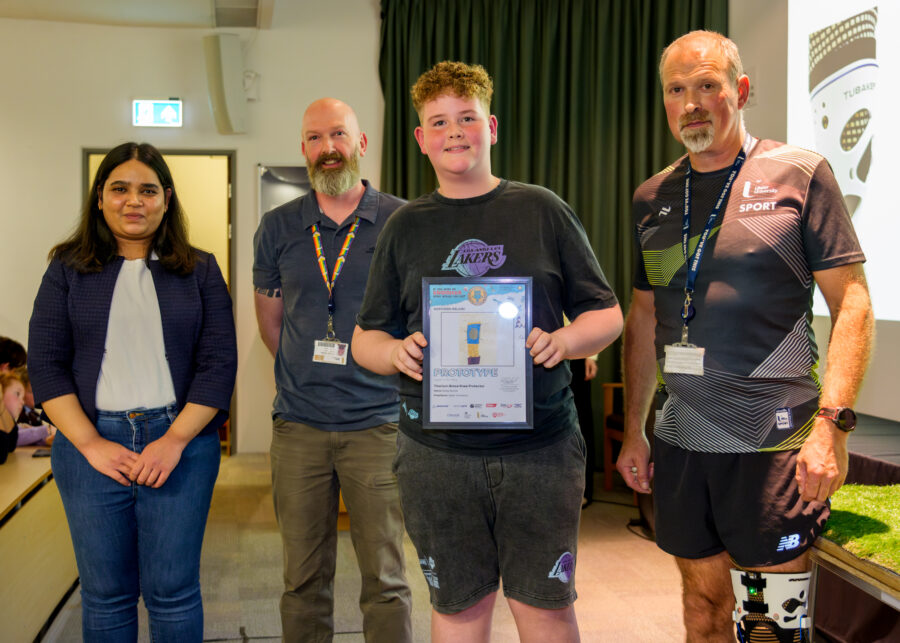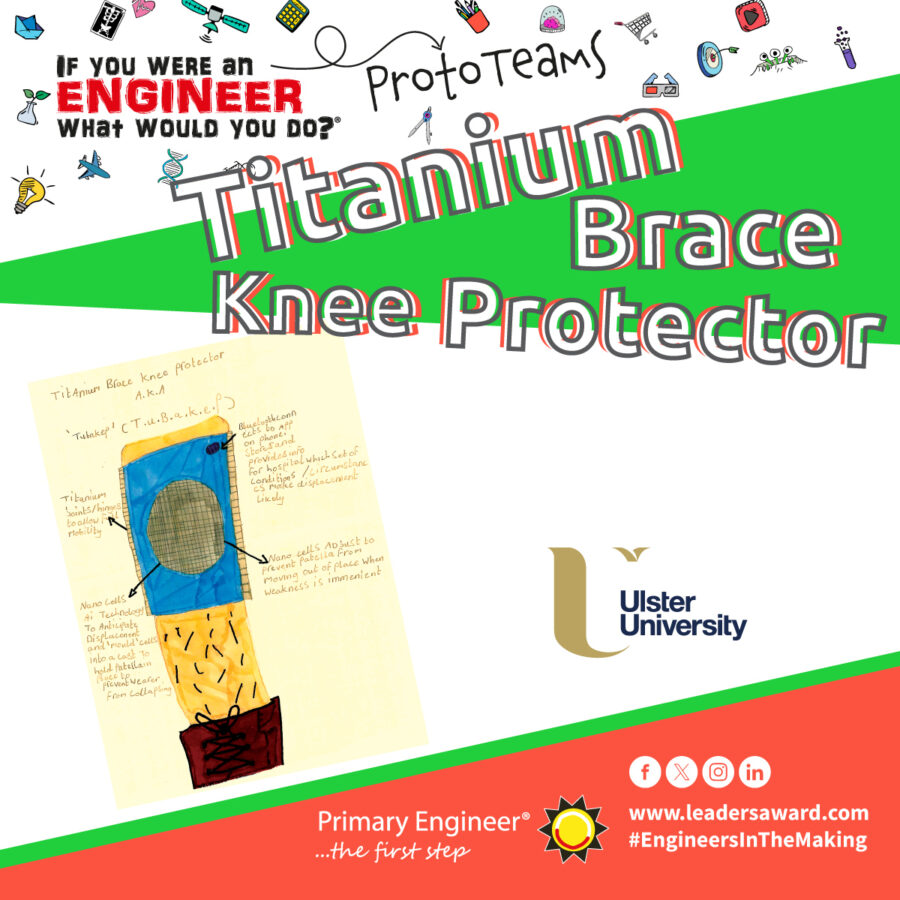
Irish Pupil designs Titanium Brace Knee Protectors to help Patella Subluxation condition
Blake, from Lisnasharragh Primary School in Belfast submitted his engineering idea to Primary Engineer’s annual UK STEM competition which asks pupils aged 3 –19 the question “If you were an engineer, what would you do?”.
He was recognised as one of the winners in his year group at the Northern Ireland award ceremony, one of 25 regional UK events, in 2024.

Blake has a condition called Patella Subluxation which means his kneecap could dislocate and cause him to fall at any time causing hours of pain and restricting him from enjoying football and basketball. After trying various treatments from braces and Physiotherapy, he has created his own solution. His idea, Titanium Brace Knee Protectors, has titanium joints to allow full mobility whilst being strong and lightweight. Around the kneecap area there is a series of nano cells which anticipate displacement and moulds the cells into a cast to hold the patella in place. The device collects data which could help clinicians understand the condition.
Each year Industry and University partners of Primary Engineer choose a pupil’s idea to build into a Prototype and to be revealed a year later at the regional awards ceremony.
Christopher Anderson, Technical Services Engineer (Design) at Ulster University said “We selected this design because of its potential to be truly life-changing for individuals with similar conditions, as well as the exceptional clarity and thoughtfulness of the specification provided by the pupil (designer). A small, student-led team—comprising both students and technical staff—was assembled to bring the concept to life. Taking the project from initial sketch to prototype, we employed 3D laser scanning, CAD, 3D printing, Arduino-based microcontrollers, electronic circuitry, and mechanical assembly tools. Due to exam schedules and other commitments, we regrettably weren’t able to meet with the pupil prior to the unveiling. However, the team was thrilled and deeply appreciative to witness the enthusiastic reception the product and presentation received from both the pupil and the wider audience. We’re excited about the prospect of this design progressing to production in the future, led by the pupil—a highly talented engineer who would be a welcome addition to Ulster University’s student intake.”
The finished prototype was officially unveiled on 25th June at the Northern Ireland regional award ceremony hosted at Ulster University.
“If you were an Engineer, what would you do” is an annual, national competition free to enter for all 3-19 school pupils. Entries are open now for 2025-2026 and schools can register now at www.leadersaward.com
Primary Engineer Public Exhibitions and Award Ceremonies continue all over the UK through to July, with a total of 18 prototypes being unveiled. Read more about the prototypes: https://leadersaward.com/prototeams/
——————————————-
Editors Notes:
This was distributed by Primary Engineer, if you have any follow up questions please get in touch with their Media Relations and Communications Manager.
Email: steph.shencoe@primaryengineer.com
Any photographs accompanying this Press Release are copyright to Primary Engineer unless otherwise stated.
About Primary Engineer:
Primary Engineer®, since 2005, have developed an engineering curriculum that spans Early Years, Primary, Secondary and Further Education institutions. Its core aims include; the development of children and young people through engagement with engineering, the promotion of engineering careers through inspiring programmes and competitions, the development of engineering skills for teachers and practitioners addressing the inequalities in engineering.
We developed a project-based learning approach to education which enables children and pupils to engage with practical math’s and science alongside creative problem solving and literacy. It has been described as STEM by Stealth® due to the integrated curriculum nature of the programmes which also develop resilience and curiosity.
Strong links to engineers and the industries they work in provides an opportunity for both pupils and teachers to expand their knowledge of careers, career paths and opportunities.
